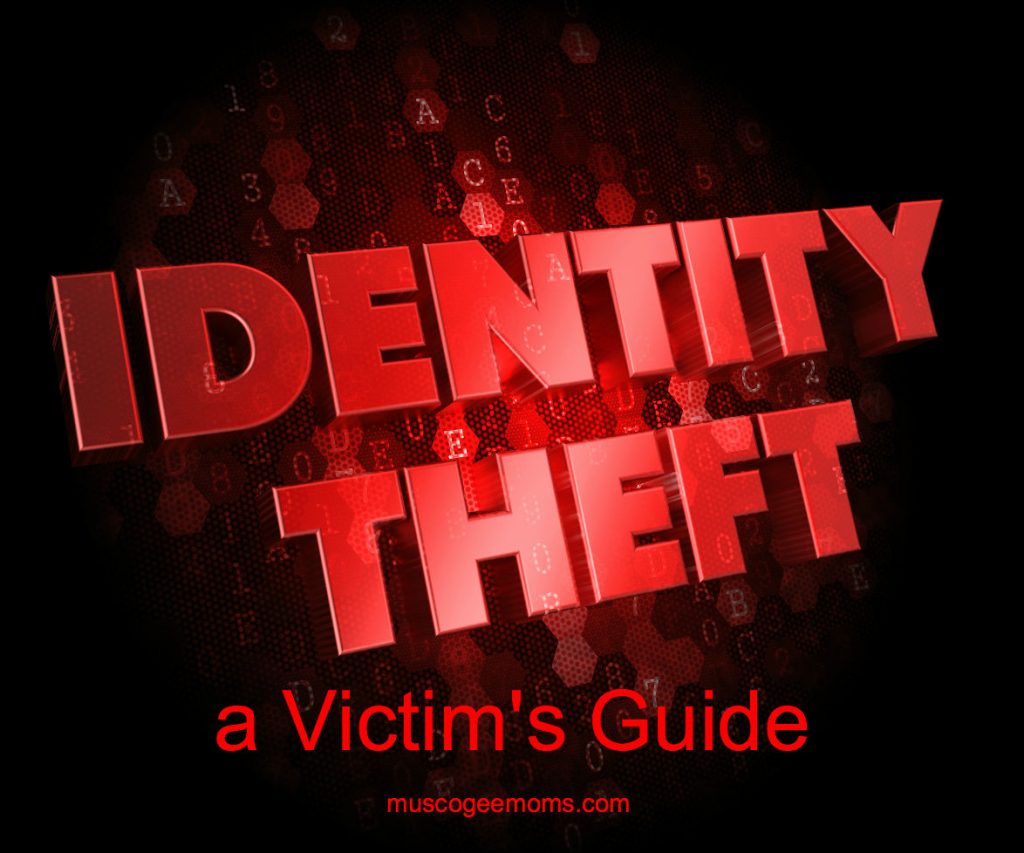By Donna Reynolds, ACES Extension Daily
At the time of identity theft, most victims are burdened with resolving the problem. It’s important to act quickly to minimize the damage.
When dealing with the authorities and financial institutions, it is important to keep a log of all conversations, including dates, names and phone numbers. Note time spent and any expenses incurred, confirm conversations in writing, send correspondence by certified mail (return receipt requested) and keep copies of all letters and documents.
Gloria Marks, a regional consumer science and personal financial management agent with the Alabama Cooperative Extension System, offered the following tips for consumers who are victims of identity theft:
Credit Bureaus
Immediately call fraud units of credit reporting companies. Report the theft of your credit cards or numbers. Ask that your account be flagged. Also, add a victim’s statement to your report, up to 100 words, such as “My ID has been used to apply for credit fraudulently. Contact me at (give phone number) to verify all applications.”
“Ask how long the fraud alert is posted on your account, and how to extend it if necessary, added Marks. “Be aware that these measures may not entirely stop new fraudulent accounts from being opened by the impostor.”
In addition, ask the credit bureaus (in writing) to provide you with free copies of your credit report every few months so you can monitor it. Ask them for names and phone numbers of credit grantors with whom fraudulent accounts have been opened. Ask them to remove inquiries that have been generated due to the fraudulent access. You may also ask the credit bureaus to notify those who have received your credit report in the last six months in order to alert them to the disputed and erroneous information.
Creditors
Contact all creditors immediately with whom your name has been used fraudulently (by phone and in writing). Get replacement cards with new account numbers for accounts that have been used fraudulently. Ask that old accounts be processed as “account closed at consumer’s request.” Carefully monitor your mail and credit card bills for evidence of new fraudulent activity.
You may be asked by banks and credit grantors to fill out and notarize fraud affidavits, which could become costly. The law doesn’t require that a notarized affidavit be provided to creditors. A written statement and supporting documentation should be enough, Marks said. Overly burdensome requirements by creditors should be reported to federal government authorities. For help determining which agency to contact, call the Privacy Rights Clearinghouse.
Law enforcement
Report the crime to all police and sheriff’s departments with jurisdiction in your case. Give them as much documented evidence as possible. Get a copy of your police report. Keep the phone number of your fraud investigator handy and give it to creditors and others who require verification of your case. Credit card companies and banks may require you to show the report in order to verify the crime.
Stolen checks
If you have had checks stolen or bank accounts set up fraudulently, report it to the check verification companies. Put stop payments on any outstanding checks of which you are unsure. Cancel your checking and savings accounts and obtain new account numbers. Give the bank a secret password for your account (not your mother’s maiden name).
ATM cards
If your ATM card has been stolen or compromised, get a new card, account number and password. Don’t use your old one. When creating a password, don’t use common numbers like the last four digits of your Social Security number or your birthdate.
Fraudulent change of address
Notify the local postal inspector if you suspect an identity thief has filed a change of your address with the post office or has used the mail to commit credit or bank fraud. Find out where fraudulent credit cards were sent. Notify the local postmaster for that address to forward all mail in your name to your own address.
Secret Service jurisdiction
The Secret Service has jurisdiction over financial fraud, but it usually doesn’t investigate individual cases unless the dollar amount is high or you are one of many victims of a fraud ring.
Social Security Number misuse
Call the Social Security Administration to report fraudulent use of your number. Also, order a copy of your Earnings and Benefits Statement and check it for accuracy.
Passports
If you have a passport, notify the passport office in writing to be on the lookout for anyone ordering a new passport fraudulently.
Phone service
If your long distance calling card has been stolen or you discover fraudulent charges on your bill, cancel the account and open a new one. Give a password which must be used to change the account.
Drivers license number misuse
You may need to change your driver’s license number if someone is using yours as identification on bad checks. Call the state office of the Department of Motor Vehicles (DMV) to see if another license was issued in your name. Put a fraud alert on your license. Fill out the DMV’s complaint form to begin the fraud investigation process.
False civil and criminal judgments
If a civil judgment has been entered in your name, contact the court where the judgment was entered and report that you are a TOI victim. If you are wrongfully prosecuted for criminal charges, contact the state Department of Justice and the FBI. Ask how to clear your name. Consult an attorney if creditors or credit bureaus are not cooperating. Also, don’t give in. Don’t pay any bill or portion of a bill, or cover a check which is a result of TOI. Simply restate your willingness to cooperate, but don’t allow yourself to be coerced into paying fraudulent bills.
Extension Daily is the official blog of the Alabama Cooperative Extension System (ACES). Reprinted with permission.



